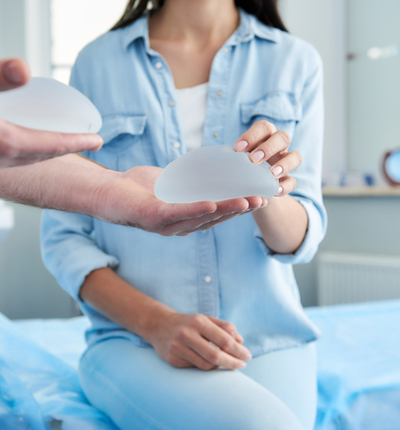
Lawyers for women with BIA-ALCL meet with the MHRA
Lawyers who represent a number of women diagnosed with Breast Implant Associated Anaplastic Large Cell Lymphoma (BIA-ALCL) have recently met with the UK regulator of medical devices, the Medicines and Healthcare products Regulatory Agency (MHRA).
Posted on 02 June 2020
Leigh Day lawyer Zahra Nanji is working with women across the UK who have been diagnosed with the uncommon, but serious, condition referred to as BIA-ALCL which is linked to textured breast implants, including specific brands Allergan Biocell, Nagor and Silimed in particular.
According to the UK regulator’s website, there are now 68 confirmed cases of BIA-ALCL in the UK.
Allergan textured implants were removed from sale across the world in July 2019. However, Nagor and other textured implants known to be associated with BIA-ALCL remain on-sale in the UK, and, as now confirmed by the MHRA, potentially available for implantation through the NHS – for example in reconstructive treatments provided to women following oncological mastectomy.
On 26 May 2020, Zahra met with Graeme Tunbridge, Interim Director of Medical Devices and the MHRA and his team, including Janine Jolly, Group Manager for Devices Safety and Surveillance, to discuss ways in which the MHRA could do more to ensure that women and clinicians in the UK have access to better diagnostic resources, improved knowledge of optimal treatment pathways in order to improve BIA-ALCL management in the UK.
In their meeting Zahra repeated her calls for the MHRA to improve the quality and quantity of information provided to patients and clinicians across the UK. She hopes that better information will empower women with textured breast implants to monitor their own condition and to facilitate access to early diagnosis, improved management and optimal treatment if they do develop this condition.
In the meeting the legal team also urged the MHRA to follow the same precautionary approach taken in Australia and France to suspend sales of Nagor implants, along with Allergan, in order to better safeguard women in the UK – whether accessing implants for cosmetic or reconstructive purposes.
Zahra Nanji, commented:
“The meeting was constructive in that Mr Tunbridge confirmed his determination, as Interim Director of Medical Devices at the MHRA, to improve the transparency and accountability of the MHRA, particularly around the issues of BIA-ALCL. Mr Tunbridge acknowledged that there was a need to rebuild trust between the MHRA and patients across the UK. Mr Tunbridge committed to providing further information concerning incidence rates and the make-up of the expert advisory committee, known as the PRASEAG, who are guiding the MHRA in its response to BIA-ALCL.
“Having spoken with Mr Tunbridge and his Team, it is clear that the MHRA are committed, in principle, to ensuring a more proactive approach to the management of BIA-ALCL in the UK – in the coming months Leigh Day will be keen to ensure that commitment in principle is converted into substantive practice."
Zahra Nanji, added:
“The meeting was a welcome opportunity to have an open dialogue with the MHRA, touching upon the issues faced by patients in respect of the provision of accurate information, timely reporting and the need for suitable guidance to practitioners and service providers backed by data and research. We were able to highlight to the MHRA how better transparency of their partners, information sources and reporting methods would increase faith in the MHRA for the benefit of the demographic they serve.”

